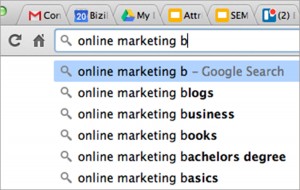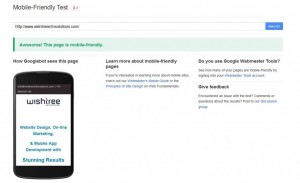
10 Tips to Enhance Your Search Engine Optimization Strategy
In the digital marketing space, Search Engine Optimization (or SEO) has become one of the leading areas to hone in on if youre seeking some major growth for your company. Whether your brand is facing a lot of competition, or is looking to bring in some more sales, employing the best SEO practices can provide you with the results your brand is seeking.
However, to effectively benefit from SEO, you need to consider which tactics will provide you with the highest ROI and are also completely aligned with search engine regulations and rules. Black-hat SEO tactics, which arent geared towards a legitimate user audience and are more focused for search engines, will get you penalized with Google, and likely result in your organization being removed from search results altogether.
From tips related to website design to the proper way to build out your keywords, weve spoken with our team of SEO experts at Wishtree Infosolutions, as well as some experts at outside organizations, to understand which methods some of the top companies are recommending when it comes to properly optimizing your website for search engines. Take a look at the ten tips below and see how you can incorporate them into your overall business plan and SEO strategy.
1. Generate Content Ideas through Auto Fill
To rank well for SEO you need great content ideas. Your blog and web pages should be bookmark worthy explains Andrew Nguyen, Content Marketer at Bizible. However, sometimes coming up with the ideas for content that you know will rank well isnt very simple. Nguyen explains how to discover strong content ideas in his tip below:

One way to help your brand come up with web content that provides value is by using Googles auto fill feature. Auto fill is the list of search queries that Google predicts and lists for you when you type in a keyword. Its a helpful feature to save people time, and its also great for marketers who need content ideas. Heres how:
- Get a list of keywords you want to rank for.
- Enter it into the Google search bar.
- Then add a letter of the alphabet. For example, type “online marketing” + “a” and you’ll see a list of search queries where the next word starts with the letter “a.”
- Write down the suggested search queries that might be good to create content around. Even if you aren’t sure you’re going to write about these topics, record them anyway. You want to create a big list to reference whenever you run out of content ideas.
- Do this for every letter of the alphabet. For example, “online marketing” + “b,” “online marketing” +”c” and etc.
2. Pay Attention to Algorithm Updates
The formula that Google uses to rank web pages is frequently changing. As an SEO professional, its vital to stay up-to-date on these algorithm updates, explains Lauren Witte, Associate Director of Marketing at JacksonWhite, P.C:
Google changes its algorithms periodicallyusually every couple of months. They typically dont announce it too far ahead of time, and the only way you might be made aware of the change is through noticing shifts in traffic to your website. A change in the current algorithm will likely mean a necessary strategy change on your end. Subscribe to digital marketing blogs to read about others experiencing algorithm updates and learn how different businesses are adjusting.
3. Leverage Keyword Tools
Selecting appropriate keywords for anything you produce is important because thats how users will find youthrough the terms they search. How do you determine which keywords you should go after? Anthony De Guzman, SEO Specialist at Saatchi and Saatchi Canada suggests the following:
Search for keyword ideas in the Google Keyword Planner (AdWords), and select a few with a good average monthly search volumeand enter them into Google. Take a look at the first page results only, since thats what you should be aiming for, and see if you can compete. Be sure to use third-party tools such as Majestic, Ahrefs, and Moz to measure how authoritative they are (page authority, domain authority, citation flow, trust, flow) and determine how optimized the article is for that particular keyword.
4. Use Google+
Google has created G+ as a way to verify and connect entities on the internet, and G+ Business is integrated with other Google products including Maps, G-Mail, Youtube and even the Chrome browser. Jefe Birkner, Senior SEO Specialist at Wishtree Infosolutions, shares the importance of using this platform:
G+ results will show up in search results and include shared endorsements when someone in a users network has +1ed a G+ listing. Content from a website that gets shared on G+ is indexed immediately, meaning that it shows up in search results before the whole site is re-indexed.
5. Think about Online Communities
Often times, to improve rankings, many businesses will turn to online communities to start sharing their content. Steve Belk, Founder of CutCableToday.com has seen success in terms of rankings when using Reddit:
Ive noticed a direct correlation between when one of my articles goes viral on Reddit, and the speed with which it gets indexed and starts ranking. My site is barely 2 months old, and Ive already had a couple of occasions where someone shared one of my articles on Reddit, it gained a lot of traction, and the same day it shot up to page 1 in the search results for relevant keywords. And those rankings have lasted.
6. Building a Backlink Profile
Backlinks are a critical part of the SEO mix, but its also vital to understand how your page authority is handled, especially if youre in a competitive niche. Taylor Daughtry, Digital Strategist at TaylorDaughtry.com shares insights on this:
Google considers all the outbound links on your site just as critical as incoming links. If theyre trustworthy, high-value sites, it influences your page authority in a positive manner, and shows Googles crawler that youre reading and linking to other high-quality content. The easiest way to consider your outbound links is the moment youre creating themwhen youre writing content. Be sure to use only reliable sources that themselves have a high page and domain authority, and youll see an increase in your own page authority. This strategy may lower your pool of available link-worthy content, but it could be just the edge youre looking for.
7. Quality Content Is Key
SEO is largely based on providing a positive user-experience. That being said, the content that you produce needs to be readable and digestible by users. Matthew DiCiero, SEO Associate at Wishtree Infosolutions, describes the need for quality content below:
For me, my number one SEO tip (especially for the future) is putting a higher importance on generating content that is digestible for consumers and search engines alike. There is more and more information supporting the idea that search engines are leaning towards algorithms that are content-driven. Identifying a content strategy that adheres to that prediction will be crucial in any digital marketing efforts and help keep you ahead of your competitors. Quality content is essential.
8. Check for Broken Links
Checking your website for broken links is an effective way to enhance your ranking and improve the experience you provide your users with explains Flo Bejgu, SEO Manager at Inbox Translation:
When a website redesign takes place, some URLS will change and links from other sites that point to your site might not work anymore. This is bad for both the user experience and SEO. Visitors coming from those pages will get a 404 error page, and those links wont pass link equity. The more working backlinks to your website, the higher in search engines you will be.
9. Mobile-Friendly Websites

Googles latest algorithm update, nicknamed mobilegeddon, is all about having a mobile-friendly website. Daniel Hickey, Director of Creative Advertising at Hickey Marketing Group recommends a responsive design:
If your website isnt mobile-responsive, have your website redesigned so mobile users can visit your site. Because more than 30% of people use their cell phones to search the web, you could be missing out on potential clients if your website doesnt appear in the Google mobile search results.
10. Video Marketing
Many businesses and individuals will overlook video marketing as an effective SEO tool. Janelle Page, Founder and CEO of KickFire Marketing Agency highlights the power of video marketing:
You can keyword rank a video faster than you can keyword rank a blog post. YouTube and Google are married so producing great video content, and then optimizing those videos, ensures you get found online. 9 out of 10 people will click on a video over a simple plain text result and YouTube is one of the fastest growing search engines.
The right approach to SEO
The strategy you use to optimize your website for search engines should be part of your entire business plan. By including the best practices, as outlined above, you can effectively enhance your rankings, and ultimately provide a better user-experience for your target audience.




My Homepage
September 8, 2021 at 9:40 pm… [Trackback]
[…] Find More Informations here: wishtreeinfosolutions.com/10-tips-to-enhance-your-search-engine-optimization-strategy/ […]
ruger firearms parts department
September 18, 2021 at 2:06 pm… [Trackback]
[…] Information to that Topic: wishtreeinfosolutions.com/10-tips-to-enhance-your-search-engine-optimization-strategy/ […]
Aer conditionat
September 28, 2021 at 12:02 am… [Trackback]
[…] Read More on on that Topic: wishtreeinfosolutions.com/10-tips-to-enhance-your-search-engine-optimization-strategy/ […]
DevOps
October 7, 2021 at 6:56 am… [Trackback]
[…] Info to that Topic: wishtreeinfosolutions.com/10-tips-to-enhance-your-search-engine-optimization-strategy/ […]
20 Completely Free Spins on Irish Luck - NO DEPOSIT REQUIRED!
November 4, 2021 at 11:11 am… [Trackback]
[…] Read More here to that Topic: wishtreeinfosolutions.com/10-tips-to-enhance-your-search-engine-optimization-strategy/ […]
sbo
November 19, 2021 at 5:24 am… [Trackback]
[…] Find More on that Topic: wishtreeinfosolutions.com/10-tips-to-enhance-your-search-engine-optimization-strategy/ […]
Dark0de Market
November 24, 2021 at 5:26 am… [Trackback]
[…] Read More on that Topic: wishtreeinfosolutions.com/10-tips-to-enhance-your-search-engine-optimization-strategy/ […]
blogstival
November 25, 2021 at 10:21 pm… [Trackback]
[…] Read More to that Topic: wishtreeinfosolutions.com/10-tips-to-enhance-your-search-engine-optimization-strategy/ […]
elangqq
December 10, 2021 at 5:45 pm… [Trackback]
[…] Read More Information here to that Topic: wishtreeinfosolutions.com/10-tips-to-enhance-your-search-engine-optimization-strategy/ […]
hotel
December 21, 2021 at 5:53 am… [Trackback]
[…] Find More to that Topic: wishtreeinfosolutions.com/10-tips-to-enhance-your-search-engine-optimization-strategy/ […]
relx
December 21, 2021 at 7:24 am… [Trackback]
[…] Here you can find 62356 additional Information on that Topic: wishtreeinfosolutions.com/10-tips-to-enhance-your-search-engine-optimization-strategy/ […]
kardinal stick
January 2, 2022 at 5:11 am… [Trackback]
[…] Read More here on that Topic: wishtreeinfosolutions.com/10-tips-to-enhance-your-search-engine-optimization-strategy/ […]
ถาดกระดาษ
January 2, 2022 at 7:29 am… [Trackback]
[…] There you will find 90017 more Info to that Topic: wishtreeinfosolutions.com/10-tips-to-enhance-your-search-engine-optimization-strategy/ […]
Buy Anadrol 50
January 5, 2022 at 2:26 pm… [Trackback]
[…] Read More Info here to that Topic: wishtreeinfosolutions.com/10-tips-to-enhance-your-search-engine-optimization-strategy/ […]
2commissioner
January 13, 2022 at 4:53 am1excluding
google zoom gay pnp chat
January 14, 2022 at 5:32 pmgay masturbation live chat https://bjsgaychatroom.info/
christian gay dating app for android
January 14, 2022 at 8:18 pmgay dating sites in kingston ny https://gaypridee.com/
michigan gay chat
January 15, 2022 at 12:26 amfcn free gay chat free chat network https://gaytgpost.com/
gay video chat apps ios
January 15, 2022 at 3:18 amgay geek chat https://gay-buddies.com/
nippleplay gay dating site
January 16, 2022 at 2:16 ammanhunt gay dating site website https://speedgaydate.com/
M&P®9 SHIELD™ EZ® TRUGLO® TRITIUM PRO NIGHT SIGHTS MANUAL THUMB SAFETY
January 20, 2022 at 10:20 pm… [Trackback]
[…] Read More Info here on that Topic: wishtreeinfosolutions.com/10-tips-to-enhance-your-search-engine-optimization-strategy/ […]
sbothailand
January 21, 2022 at 5:06 am… [Trackback]
[…] Info on that Topic: wishtreeinfosolutions.com/10-tips-to-enhance-your-search-engine-optimization-strategy/ […]
ตรวจหวย
January 27, 2022 at 7:04 am… [Trackback]
[…] Find More here on that Topic: wishtreeinfosolutions.com/10-tips-to-enhance-your-search-engine-optimization-strategy/ […]
free slots triple diamond
January 29, 2022 at 12:02 amcaesar casino slots game https://2-free-slots.com/
free casino slots games
January 29, 2022 at 2:02 amall slots casino https://freeonlneslotmachine.com/
free online casino slots
January 29, 2022 at 5:25 amfortnite weapon slots https://candylandslotmachine.com/
wobka slots promo codes
January 29, 2022 at 8:43 amyoutube slots 2022 vegas https://pennyslotmachines.org/
free game slots
January 29, 2022 at 2:48 pmslots games https://slotmachinesworld.com/
deal or no deal slots
February 3, 2022 at 11:14 pmold vegas slots https://slotmachinesforum.net/
free online slots
February 4, 2022 at 3:46 ammy konami slots https://slot-machine-sale.com/
cash me out slots youtube
February 4, 2022 at 5:40 amslots pictures https://beat-slot-machines.com/
slots free single
February 4, 2022 at 8:36 ammirrorball slots https://download-slot-machines.com/
liberty slots casino
February 4, 2022 at 1:52 pmoceans of beauty slots https://411slotmachine.com/
pop slots free
February 4, 2022 at 4:05 pmbest slots near me https://www-slotmachines.com/
ceasars slots
February 4, 2022 at 8:07 pmaristocrat free slots https://slotmachinegameinfo.com/
dissertation editor near me
February 11, 2022 at 1:34 amjill biden dissertation pdf https://buydissertationhelp.com/
BUY COLT KING COBRA CARRY DAO REVOLVER
February 11, 2022 at 6:07 am… [Trackback]
[…] Info on that Topic: wishtreeinfosolutions.com/10-tips-to-enhance-your-search-engine-optimization-strategy/ […]
dissertation statistics help
February 11, 2022 at 7:43 pmwriting a rationale for dissertation https://dissertationwriting-service.com/
cheap dissertation writing services
February 11, 2022 at 11:30 pmwhat is dissertation defense https://help-with-dissertations.com/
online dissertation help gottingen
February 12, 2022 at 5:55 amonline law dissertation help https://mydissertationwritinghelp.com/
dissertation help near me
February 12, 2022 at 9:21 amdissertation phd https://dissertations-writing.org/
custom dissertation help
February 12, 2022 at 10:55 amwriting a psychology dissertation https://helpon-doctoral-dissertations.net/